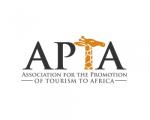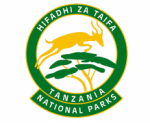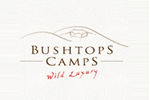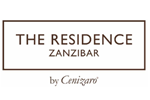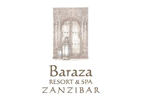Traveling to Africa for a safari is an exciting adventure! To ensure you’re fully prepared, please review the following guide carefully and take the necessary actions before departure.
1. Time Zone & Location
- Location: Arusha, Tanzania
- Time Zone: East African Time (EAT), GMT+3
Action: Adjust your devices to EAT upon arrival.
2. Travel Insurance
- When to Purchase: Within 14 days of paying your deposit
- Coverage Should Include:
- Medical emergencies and hospitalization
- Cancellation and curtailment
- Baggage loss/damage
- Cancellation fees protection (essential to avoid financial loss if travel plans change)
- Coverage Area: Confirm that the policy covers all countries on your itinerary
Action: Compare policies to ensure comprehensive coverage for all aspects of your trip.
3. Visas & Passport Requirements
- Passport Validity: Must be valid for at least 6 months beyond your intended stay
- Visa Pages: At least 2 consecutive blank visa pages (3-4 if traveling through multiple countries)
- Visa Details:
- Check entry requirements with the relevant embassies/consulates based on your nationality.
- For visas available at the port of entry, these are usually payable in US dollars. Bring small denominations since change may not be available.
- Many countries offer online visa applications—apply in advance if available.
Action: Verify your passport and visa requirements well in advance to avoid entry issues.
Here is the link for Tanzania Evisa: https://visa.immigration.go.tz/
4. Zanzibar Mandatory Insurance
Effective 1 October 2024, all tourists arriving in Zanzibar must purchase mandatory travel insurance:
- Price: USD 44 per person
- Validity: Up to 92 days
- Purchase Online: Visit Zanzibar Insurance Portal
- Note: This insurance is required in addition to any other travel insurance you may have.
Action: Purchase your Zanzibar insurance before arrival.
5. Payment Advice
- Currency:
- US Currency: Accepted in many African countries – carry small denominations and fresh notes (printed post-2007).
- South Africa: US dollars are not accepted. Use South African Rand or a credit card.
- Credit Cards:
- Widely accepted at hotels/lodges; however, use cash (USD or local currency) for tipping and small purchases.
- Note: American Express may not be accepted by many vendors; Visa or Mastercard is preferable.
- ATMs: In South Africa, you can withdraw Rand using a card (ensure your card has a PIN and is marked with "Maestro" or "Cirrus").
Action: Prepare a mix of cash and credit, and consider exchanging a small amount (around USD 200) into local currency if needed.
6. Power & Adapters
- Travel Adapter:
- Bring a suitable adapter before departure. We recommend the Belkin F8E449 Universal AC Travel Adapter.
- Note: There is no “fully universal” plug for Africa, so ensure your adapter covers multiple plug types.
- Electricity at Lodges:
- Remote lodges may operate on generator or solar power—this may affect devices that require continuous power (e.g., sleep apnea machines).
- Voltage:
- Varies between 220-250V AC, 50Hz.
- Tip: Check if your gadgets are dual voltage; if not, a voltage converter may be required.
Action: Confirm your electrical needs and pack accordingly.
7. Check-in & Check-out Times
- Hotels/Guest Houses:
- Check-in: Between 14:00 and 18:00
- Check-out: Between 10:00 and 11:00
- Safari Lodges:
- Check-in: From 13:00 (aim to arrive before 15:00 for afternoon game drives starting around 15:30–16:00)
- Early/Late Requests:
- If you need early check-in or late check-out, inform your travel consultant in advance. Note that additional nights may be required.
Action: Coordinate arrival times with your consultant to avoid delays.
8. Languages
- Common Language: English is widely spoken throughout Southern & East Africa.
- Exceptions:
- In Mozambique, Portuguese is the common language. Action: Consider learning a few key phrases in Portuguese if you plan to visit Mozambique.
9. Scheduled Charter Flights & Luggage Allowance
- Light Charter Flights:
- Luggage:
- Each traveler: 1 soft-sided checked bag + a small day pack/handbag, total weight not exceeding 15 kg (33 lbs)
- Avoid hard-shell or bulky luggage as space is limited
- Note: These flights may have multiple stops.
- Commercial Flights:
- Allowance: Typically, 1 checked suitcase of up to 20 kg (44 lbs) per person
- On-Trip Laundry:
- Many lodges offer laundry services at little or no extra cost—pack versatile clothing.
Action: Pack light and plan to use on-site laundry where available.
10. Health & Vaccinations
- Consultation: Speak with your medical practitioner or a travel clinic to:
- Determine which vaccinations (e.g., Yellow Fever, measles, mumps, rubella, polio, tetanus, diphtheria, whooping cough, hepatitis A, cholera, typhoid) are recommended.
- Consider malaria prophylactics if required by your destination.
- Country-Specific:
- Requirements may vary depending on your itinerary—discuss details with your healthcare provider.
Action: Schedule a travel health consultation well in advance.
11. Traveling with Children
For minors (under 18 years) traveling to/from the Republic of South Africa, Namibia, and Botswana, ensure you have the following documentation:
- General Requirements:
- Valid passport with at least 6 months’ validity
- Original or certified true copies of required documents, with sworn translations if not in English
- For Both Parents Traveling:
- Child’s passport and a copy of the birth certificate (or equivalent document) showing parent details
- For One Parent Traveling:
- Child’s passport, a copy of the birth certificate, a parental consent letter, a copy of the absent parent’s ID/passport, and their contact details
- If applicable: Court orders or death certificate of the absent parent
- For Children with Non-Parent Guardians:
- Child’s passport, birth certificate copy, parental consent letters, copies of the guardians’ IDs, and contact details of the parents/legal guardians
- For Unaccompanied Minors:
- Child’s passport, birth certificate, parental consent letters, guardians’ IDs, and a letter from the receiving party in the destination country with their contact details
Action: Review and prepare all necessary documents for each child well ahead of your trip.
12. Tipping Guidelines
Tipping is a valued part of African hospitality and service culture. Always tip if you are satisfied with the service.
- Restaurants (off-safari): 10%–15% tip if service isn’t included.
- Safari Services (per couple, per day):
- Safari Ranger/Guide: USD 30 (or EUR 30)
- Safari Tracker: USD 12 (or EUR 12)
- Safari/Hotel Butler: USD 12 (or EUR 12)
- Safari/Hotel General Staff: USD 12
- City Day Tours:
- Half-Day Guide: USD 12 (or EUR 12)
- Full-Day Guide: USD 25 (or EUR 25)
- Method:
- Tips are typically given discreetly at the end of your stay.
- You may also allocate tips via credit card payments if preferred.
Action: Keep small bills handy for tipping and adjust amounts based on service quality.
13. Additional Important Information
- Cultural Considerations:
- Local laws, religious beliefs, and cultural practices can be more conservative than what you’re used to.
- It’s important to conduct your own research and respect local customs while traveling.
Action: Familiarize yourself with cultural norms of each country you plan to visit.
14. Packing Essentials for Your Safari
Pack smart and light to ensure comfort and convenience during your adventure. Here’s a quick checklist:
- Clothing:
- Lightweight, breathable layers for hot days and cooler evenings
- Neutral-colored clothes (avoid bright colors to blend in with nature)
- A wide-brimmed hat, sunglasses, and a bandana or scarf for sun protection
- A light fleece or jacket for early mornings and evenings
- Footwear:
- Comfortable walking shoes or hiking boots
- Sandals or flip-flops for downtime at lodges
- Accessories & Essentials:
- Insect repellent and sunscreen
- A small daypack for excursions.
- Travel Documents & Miscellaneous:
- Copies of your passport, visas, and travel insurance details
- A universal travel adapter (and voltage converter if needed)
- Any personal medication and a basic first-aid kit
Action: Review this checklist and pack items that meet your specific needs.
By following this guide and completing the necessary actions, you’ll be well-prepared for an unforgettable safari experience. Enjoy your adventure and safe travels!

 1-321-766-6821
1-321-766-6821 





